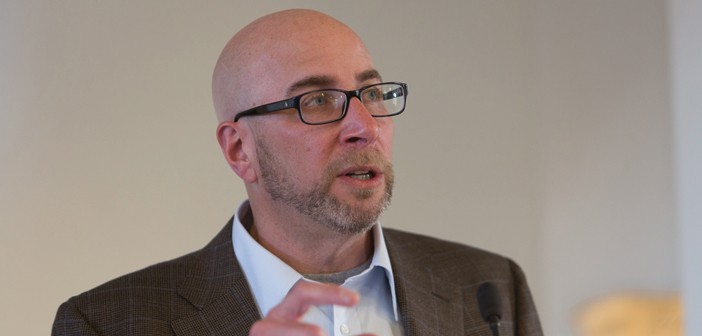“I’m sorry? Are you speaking to me?” says the physician.
“Who else would I be talking to?”
“Maybe your son…”
“I’ve wasted enough breaths on him.” Sniffling mists the phone line. “Where’s he at? My brother?”
“The ER. His body. Thinking it was best for you to see him…”
“You lied to me,” she interrupts. “He was dead when you first called me, wasn’t he?”
“Giving the news over the phone can be dangerous. Sometimes folks become very upset. They dash to the hospital and crash and become patients themselves. We try to avoid that.”
“I don’t drive. I can’t.”
“Yes, you told me.” The physician squeezes the receiver, nestles against it, then pulls away. It stinks of ear sweat and cheap plastic. “Your brother called 911 himself. The medics said he was breathing when they found him on the floor of his apartment.”
“He kept that place spotless,” she says. “Not much need for furniture, except for that futon. Who can get up from those things?”
“Your brother’s heart stopped in the ambulance. The medics were all over it.”
“What makes you think I want to hear all this?”
“The chain of events were lined up just so. I thought we could save him. We tried everything.”
The explosions from the TV float over the physician.
“He had a heart attack a few weeks ago,” the sister says. “You knew that, right? A small one.”
He hears the ping of gunfire, hollering and music throbbing with faux suspense.
“What’s this?”
“Can you hear me?”
The physician forces the phone against his ear.
“He walked out of a hospital in Connecticut. His heart had blockages, the doctors said. Next day, he’s back on the site lugging rebar.”
“Say again?”
“He didn’t have medical. He never bought a stitch if he didn’t have the cash in his pocket. He was responsible in that way. I told him to stop being stupid. He said the hospital bills would kill him before any heart attack.”
“He knew he might die?”
“It had to be on his mind, right?” she says.
This news shouldn’t diminish the tragedy, but the physician feels a smile, a reprieve from responsibility, slipping into his face. The distance from the sister now offers refuge. “Can you lower the sound?” the physician asks, aware that it’s her home. “Maybe go into another room?”
“It’s a landline,” she says. “The cord only stretches so far.”
The physician remembers what she had said earlier, that she didn’t walk too well.
“You need to show some respect,” she says.
“Excuse me?”
“Not you.” She appeals to her son. “My brother just died. Please.”
The television sounds recede.
“That’s better. You were saying, doctor?”
“I’m sorry,” the physician says.
“You already said that. Doesn’t matter anyway. I was hoping …”
“What’s that?” the physician says.
“I wanted to see him,” she says, her voice crumbling. The wave of television noise slowly rising.
“Doesn’t your son drive? Have a car?”
“He does. He does. But he’s very busy. It’s better this way. He and his uncle didn’t see eye to eye. We weren’t close.”
“Put your son on the line,” the physician says.
“Nothing good would come of that,” she says.
The physician wants to argue, except he has not earned the right. He couldn’t save her brother. What’s left is an irrational need to rescue, or at least salvage, this conversation.
“Don’t you want to say goodbye?” says the physician. “Closure is important.”
“You know, I was once an excellent driver.”
Shrieking tires peel through the phone line. The physician listens for the sister’s voice. “Mrs.—?” The physician doesn’t remember her name. He knows her only as the sister of the deceased, the next of kin who needed to be notified. “Hello?” Enough bad television dialogue. The longer he waits the sillier he feels. Silliness sharpens into anger, then anger morphs into doubt. Should he be concerned for her safety, calling the police? No. Enough with the crashing vehicles, the insane whoops. What are you doing, he presses himself. Hanging on the line, abandoned by logic, he sees himself in the moment and looking back on it, an illusionary hindsight that offers no answers, but carries no regrets either. Enough, he tells himself, you did your best; enough, and returns the phone to its cradle.
- “Health care has become surreal on its own and doesn’t need any help from fiction writers.”
Read more
“Calling the Code” in What’s Left Out by Jay Baruch. Copyright ©2015 by Jay Baruch. Published by The Kent State University Press, Kent, OH. Reprinted with permission.




